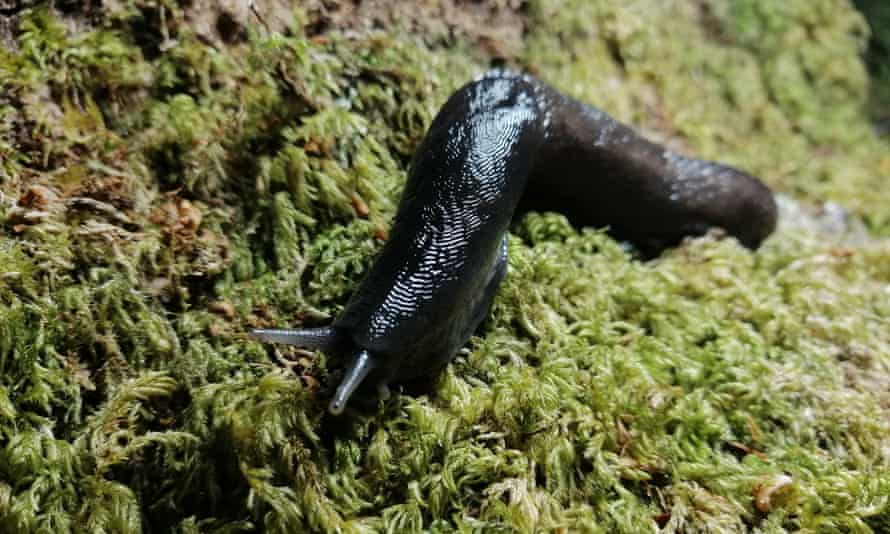Country diary: on the trail of the monster mollusc
East Dartmoor, Devon: Lurking in the woodland is an elusive member of the invertebrate night shift – the ash-black slug

Gardeners, look away now. There are slugs in all directions, scattered by the dozen across the damp ground like wine gums – lemon yellow, apricot orange, pale pear, glossy blackcurrant.
I stoop to check the appearance of the darker individuals, only they are tiddlers compared with the species I am searching for. I press on, following my torch beam beneath the woodland canopy in the Dart Valley. Where the track passes through a stand of oak trees I inspect the mossy tangles of roots and furrowed trunks. This is a good place to look, I’m told by the local entomologist John Walters.
Wandering alone at night in a Dartmoor forest, far from the nearest road, is an unsettling experience. Yet, this is not the first time that I’ve embarked on such a nocturnal foray. Several years ago, I joined citizen scientists in Borneo on the trail of species unknown to science. Among a number of finds, our Taxon Expeditions group discovered a new kind of rainforest “semi-slug”, part way between ancestral snail and shell-less slug.
But that striped 2cm rarity would be dwarfed by the monster mollusc that lurks in this ancient West Country woodland: the ash-black slug (Limax cinereoniger). Capable of growing to over 20cm in length, it is not only the longest of the UK’s 40 species, but also reputed to be the world’s largest land slug.
You won’t find this hefty critter munching through your lettuces and tender perennials. Instead, the ash-black is a forest inhabitant with an appetite for fungi and algae, typically spotted climbing trees once the sun goes down.
After an hour of searching, my torchlight picks out something resembling a lump of liquorice at the broad base of an oak. Closer examination reveals a tell-tale pale ridge along its lower back, identifying it as the species I seek – my first-ever sighting of an ash-black slug. It gradually unfurls and heads off across the bark, at full stretch exceeding 12cm.
There is something mesmerising about slugs in motion, smoothing the way as they go. Time slows as I watch this impressive specimen gliding silently and serenely onwards, joining the invertebrate night shift – an HGV among the gastropod traffic.